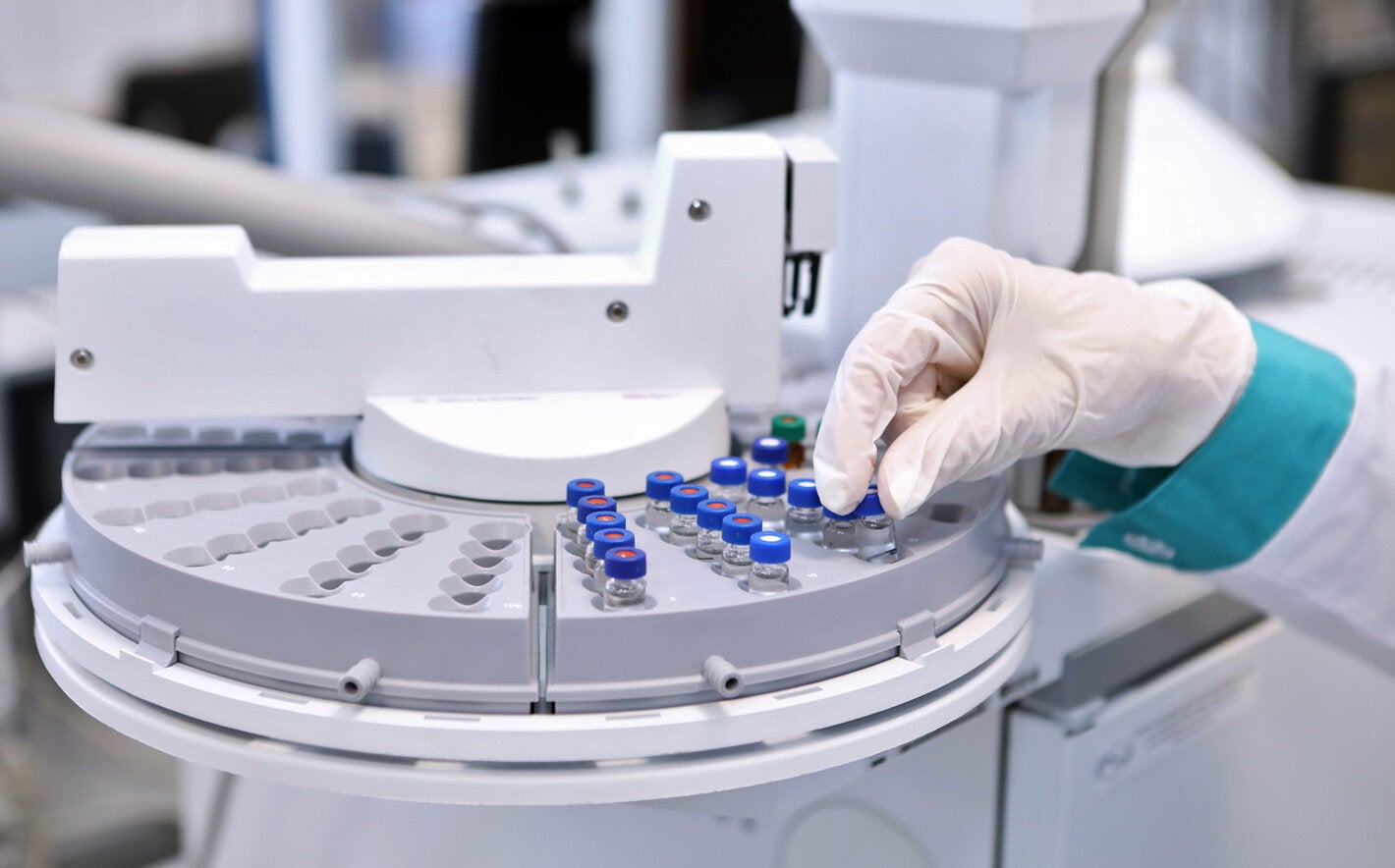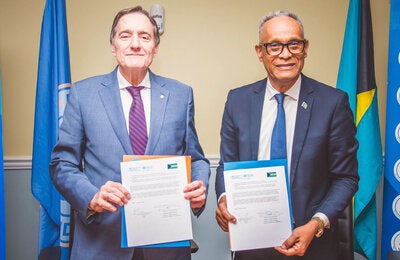
Only 3% of the regional population is fully vaccinated against COVID-19. Less than 4% of medical products used during the pandemic have come from the region. Production of vaccines and medical supplies in the region must expand to reduce overdependence on imports and increase access to vaccines, Director says.
Washington, D.C. May 19, 2021 (PAHO) – PAHO Director Carissa F. Etienne today called for closing the “glaring gaps” in access to COVID-19 vaccines in Latin America and the Caribbean by relying less on imports and more on expanded regional production of medical products including vaccines.
Pointing out that only 3% of people in Latin America and the Caribbean have been fully vaccinated against COVID-19, Dr. Etienne asserted that the shortage of vaccines is a “symptom of our region’s overdependence on imports for essential medical supplies. Less than 4% of medical products in use during the COVID response have come from the region.”
“Expanding our regional capacity to manufacture strategic medical supplies – especially vaccines – is a must, both for our people and as a matter of health security.”
Dr. Etienne drew attention to the region’s “building blocks” for expanded production – strong academic and research institutions, manufacturing capacity, and regulatory systems, and an effective procurement mechanism. Argentina, Brazil, Cuba, and Mexico have well-established vaccine manufacturing facilities, some of which are being updated to produce COVID-19 vaccines, she said.
“We must ramp up production for the entire vaccine value chain – from the ingredients that go into vaccines to the vials and syringes that help us deliver them – without compromising quality,” she said.
Dr. Etienne added that the region must “embrace the promise of mRNA technologies,” which are the basis of the highly effective Moderna and Pfizer vaccines but could also be used for other vaccines. She said, “PAHO is working closely with the World Health Organization on its COVID-19 mRNA vaccine technology transfer hub.”
PAHO also is in discussion with regional partners such as the Inter-American Development Bank, the Organization of American States, and its Member States to ensure that countries interested in expanding manufacturing have resources and support, she said. Argentina, Chile, and Peru are among those that have already shown interest.
“For this to work,” Dr. Etienne said, “we need scale, a commitment to purchase regionally-made products, and assurance that products will flow freely and without export bans – even during emergencies. Our Revolving Fund stands ready to help purchase and deliver these products throughout our region – as we’ve done for the last 40 years.”
“A regional manufacturing network that builds on our national strengths and that is backed by sustained financial commitments is long overdue,” she continued. “It’s also our best hope for a long-term solution – because COVID will not be the last virus that tests our health systems.”
PAHO has delivered more than 12 million COVAX-procured vaccine doses to countries in Latin America and the Caribbean. COVAX is the global alliance for equitable distribution of COVID-19 vaccines. Another 770,000 doses are on the way to Central American and Caribbean countries, Dr. Etienne said.
She also addressed the pandemic’s heavy toll, noting that there were over 1.2 million new COVID-19 cases in the Americas in the past week and about 31,000 deaths.
Although COVID-19 infections generally have declined in the past month in the region, new cases and deaths are still on the rise in many countries, Dr. Etienne said. Many Caribbean countries – including the Bahamas, Haiti and Trinidad and Tobago – have seen COVID-19 deaths double in the last week. Costa Rica, Panama, and parts of Honduras are reporting dramatic increases in new infections.
Infections are increasing in Bolivia, and French Guiana while the “decreasing trends” in Brazil in previous weeks have paused. “Despite overall reductions in most South American countries, some hotspots in Argentina and Uruguay saw a doubling of cases and deaths in the last week,” she said.
Pandemic conditions have changed profoundly in the United States, “where widespread [vaccine] coverage has led to a sharp reduction in U.S. COVID infections, deaths and hospitalizations,” Dr. Etienne said. “The progress we’re seeing in the U.S. is a testament to the power of safe and effective COVID vaccines, but it underscores the vital importance of accelerating access to vaccines throughout our region, so that other countries can fully immunize their populations.”
“We urgently need more vaccines for Latin America and the Caribbean, a region that has been put to the test by this pandemic,” she emphasized.
Contacts
Daniel Epstein
Nancy Nusser
Sebastián Oliel
Ashley Baldwin
Nadia Peimbert-Rappaport
mediateam@paho.org



